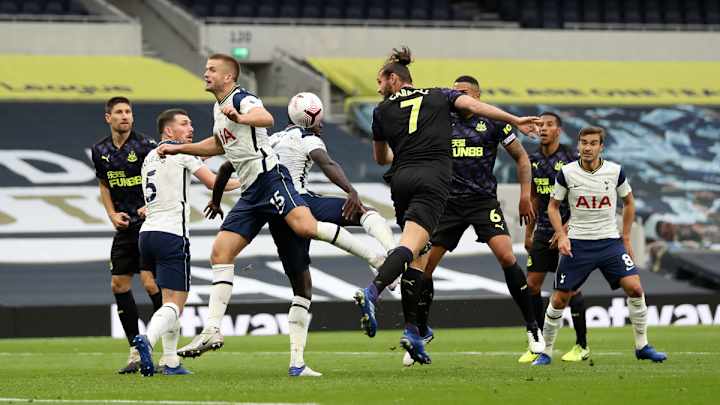In Striving to Achieve Consistency, Premier League Nets a Handball Headache

It turns out that for years football has been haunted by a secret scourge. We didn’t talk about it. We pretended it wasn’t happening. We turned a blind eye. We let it fester and chew away at the very fabric of the game. At every level, from the Premier League to the public parks, it was there, this unseen, unspoken evil. All over England, footballers were handling the ball.
It’s just as well, then, that football finally has its Joe McCarthy, its Matthew Hopkins, to root out the toxin. Former referee David Elleray, a former schoolmaster at Harrow, has since 2016 been the technical director of International Football Association Board (IFAB), the eight-man body comprising an Englishman, a Scotsman, a Welshman, a Northern Irishman and four FIFA delegates representing the rest of the world that controls the Laws of the Game (when it was constituted in its present form in 1913, the presence of the four non-Brits was seen as remarkably outward-looking cosmopolitanism). In that time, he has made 178 amendments to 16 of football’s 17 laws.
In the mid-late 1990s, Elleray was England’s top referee. He took charge of the 1994 FA Cup final, and he only missed out on the 1998 World Cup because of teaching commitments. It’s fair to say he was never hugely popular with either fans or players, many of whom found him fussy and high-handed. Without the players’ knowledge, Elleray wore a microphone for a 1989-90 league game between Arsenal and Millwall for a documentary chiefly memorable for three things: the amount of abuse he received, Tony Adams’s astonishingly high-pitched voice and his habit of responding to criticism by snapping, “Clear orf! Go away!”
For years, football shrugged at handballs. They happened. Balls get kicked at people. Often there’s no time to react. They bounce strangely or get deflected. The worst examples would be penalized, but essentially if nobody had deliberately cheated, the game went on. That led, inevitably, to a level of inconsistency.
With the advent of video technology, it’s become apparent that balls are hitting hands all the time. Elleray couldn’t have that. The Law is the Law. It is not to be applied with sensitivity and understanding. A committee determined in 1863 that handball was an offense and so it must be punished. There had been no outcry from within the game about this beyond some pundits grumbling about inconsistencies, but Elleray believes laws are to be enforced. In trying to stamp out the inconsistencies, though, the Witchfinder General has created a far greater monster.
The changes to the laws were introduced last season. The Premier League chose to ignore them, but its refereeing body, the Professional Game Match Officials Limited (PGMOL), has since been brought into line (for refereeing, being run by committees of professional nit-pickers is unsurprisingly and intensely political). The result was that in Serie A last season there were 57 penalties given for handball and in La Liga 48. In the Premier League there were only 20. This season, after three of the 38 matchdays, the Premier League is already up to six.
The law as now enforced means that any ball striking an arm when it is not tight to the body is an offense. It doesn’t matter if that player is running, arms pumping, and the ball smashed into him from a couple of yards, like the handball Victor Lindelof was penalized for against Crystal Palace. It doesn’t matter if the player has just checked back and his arm has moved to an angle of perhaps 15 degrees for balance, as happened to Joel Ward against Everton. It doesn’t matter if the ball is driven hard and deflects up from close range, as happened to Robin Koch against Liverpool. It doesn’t matter if a player jumps for a header, misses it, and the ball strikes the back of his arm off another player behind him when he isn’t even looking, as happened to Eric Dier against Newcastle. For Elleray, the gods of handball have been outraged and must be appeased.
It’s nonsense, of course. On that, everybody is united. Football matches shouldn’t be determined by the random bounce of a ball brushing an arm. The quest for consistency has only made the inconsistencies more apparent. Why was Gabriel not penalized against West Ham when his arm appeared outstretched? Given Chelsea gained a clear advantage when Kai Havertz effectively, but accidentally, controlled a ball with his upper arm against West Brom, why was that goal not disallowed? Didn’t the ball brush Diogo Jota’s bicep before his strike against Arsenal?
Referees have made clear they are unhappy being asked to impose a regulation with which they disagree, and the PGMOL is hoping for an update that provides a bit more leniency. For over a century, a handball has been a handball if a player could reasonably have been expected to avoid the contact. There was some grey area, but broadly speaking it worked. Or at least it worked better than the course of games being radically shifted by minor and unavoidable technical breaches.

An accomplished author of multiple books, Jonathan Wilson is one of the world’s preeminent minds on soccer tactics and history.